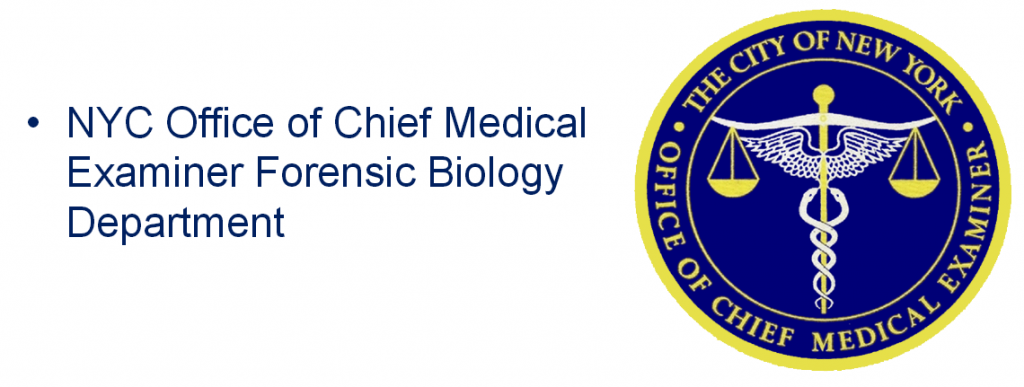Low Copy Number (LCN) DNA and a mixture DNA interpretation have been a subject of parts of blog posts here in the past.
On November 7, 2014, Brooklyn based Justice Mark Dwyer has issued an opinion the LCN DNA and a specific type of diagnostic and alleged statistical tool for the interpretation of mixture DNA samples known as “Forensic Statistical Tool” (FST) do not survive Frye based scrutiny. Dwyer, a judge of the New York State Court of Claims, is an acting justice of the New York State Supreme Court.
FST is a program designed by the Office of the Chief Medical Examiner’s forensic biology lab.

I have not read the transcript of the oral opinion, if one exists, but it certainly is interesting news. Considering what I could find out, it seemed to be a very well mounted challenge lasting over 2 years. Legal-Aid lawyers Jessica Goldthwaite, Clinton Hughes, Susan Friedman, Daniel Ades, Karen Faraguna, and Susan Morris are the reported lawyers involved. The experts called by the defense is a veritable who’s who in forensic DNA testing including Dr. Bruce Budowle, former veteran senior scientist for the Federal Bureau of Investigation, Dr. Ranajit Chakraborty, who was instrumental in developing the national DNA database system, and Dr. Eli Shapiro, a former supervisor at the OCME.
This is especially interesting news when it comes to the Forensic Statistical Tool software as it received the imprimatur of the New York State Forensic Science Commission in December 2010. You can see the pdf of the powerpoint presentation entitled “Forensic Statistical Tool. Probabilistic Genotyping: The Use of the Forensic Statistical Tool (FST)” by Craig O’Connor, PhD. Does this mark any potential meaningful challenges to TrueAllele, LoComatioN, Forensim, LikeLTD and Lab Retriever? Only time will tell.

Judge tosses out two types of DNA evidence used regularly in criminal cases
NEW YORK DAILY NEWSMonday, January 5, 2015, 2:30 AMA Brooklyn judge has stirred up controversy by tossing out two types of DNA evidence regularly used in criminal cases throughout the city, the Daily News has learned.
Justice Mark Dwyer has thrown out the results of low copy number DNA testing, which generates profiles from minuscule samples, and Forensic Statistical Tool, a program designed by the Office of the Chief Medical Examiner’s forensic biology lab that scores the chances a person’s DNA is part of a complex sample.
The practices have helped prosecutors throughout the city win convictions and have also been used to exonerate innocent defendants, sources say.
In barring the evidence in two Brooklyn Supreme Court cases, Dwyer decided the procedures are not generally accepted in forensic science and do not have a place in the courtroom.
“To have a technique that is so controversial that the community of scientists who are experts in the field can’t agree on it and then to throw it in front of a lay jury and expect them to be able to make sense of it, is just the opposite of what the ‘Frye standard’ is all about,” Dwyer said, referring to low copy number testing and case law on admissibility.
He added that “the descending chorus” opposed to the city-developed Forensic Statistical Tool “was strong enough that I can’t say the Frye test has been satisfied,” he added.
The judge, who is widely respected and served as retired Manhattan District Attorney Robert Morgenthau’s top deputy, noted that his opinion, delivered orally at a Nov. 7 hearing “will hardly be the last word.”
His decision is expected to be on the table again Monday after the Brooklyn District Attorney Office’s asked to present previously unavailable information that is “directly relevant.”
Brooklyn DA Ken Thompson decried the ruling as a step backward in the “CSI” age of crime-fighting, saying the two methods “are instrumental in prosecuting homicides and sexual assaults, and have helped to exonerate people who have been wrongfully convicted.”
The DA added that “the relevant scientific community has already embraced such technologies.”
A spokesman for Manhattan DA Cyrus Vance Jr. said low copy number testing “has assisted with the prosecution of dangerous criminals and, just as importantly, the exoneration of those found to be innocent.”
“Removing it as a tool for police and prosecutors would lead to significant setbacks in 21st century evidence-gathering techniques,” said the spokesman, Patrick Muncie.
The Legal Aid Society’s DNA team, which brought the challenge, argued that both forms of evidence are unreliable and the margins of error are too high.
Their win came after a joint hearing in the cases of Andrew Peaks and Jaquan Collins, charged in unconnected violent felonies in Brooklyn.
Prosecutors say Peaks, 29, choked, sexually abused and robbed a woman in the hallway of her apartment building in July 2010.
When she dropped her purse in the frightening ordeal, Peaks scooped it up and left a baseball cap behind, the DA said.
The hat stored DNA samples that were “suitable for direct comparison only” through Forensic Statistical Tool analysis that illustrated the likelihood Peaks –charged in a similar violent attack on another woman weeks later — was a major male donor.
Collins, 33, an accused gunman, allegedly left behind a small amount of DNA on a bike he rode during a non-fatal shooting in August 2010.
The sample, which was low copy number tested, was found to be “consistent” with Collins’s DNA profile.
Prior to Dwyer’s ruling, city judges have said the two methods are admissible. Higher courts are expected to examine the issues and judges at Dwyer’s level are not bound by the ruling.


